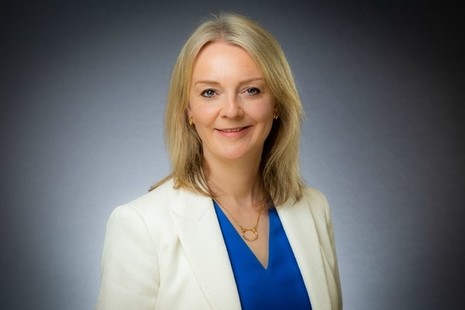
(Photo Credit: Department of International Trade)
Government has today (23 April) reiterated its refusal to extend the transition period for EU trade, saying it does not want to prolong the “period of uncertainty” for businesses.
The Secretary of State for Trade, Liz Truss, said talks were ongoing with the EU on a virtual basis and DIT will be starting virtual negotiations with the USA and Japan soon.
Truss said she was confident they can get “these deals done”.
Earlier this month national media reported that trade talks with the US had been shelved as managing COVID-19 had taken priority.
UK Global Tariff
Truss said the ‘UK Global Tariff’ – its tariff schedule with the WTO – will soon be published and negotiations for continuity deals, including for Canada, are ongoing.
The UK Global Tariff – which will determine tariffs for imports from countries with whom the UK does not have trade agreements – will be “simpler”, “more easy to administer” and have “more tariff-free areas than the EU currently has”, Truss said.
Speaking on a live Q&A webinar hosted by the British Chamber of Commerce this morning, she said:
“Our view is that we can get these negotiations done, that extending the timeline will simply extend the period of uncertainty. One of the points of announcing the UK Global Tariff is to give certainty to business.”
Free trade and resilience
The Department for International Trade (DIT) will be looking to build the UK’s resilience for future crises, said Truss, with the UK found to be overly reliant on specific markets for key medical supplies.
With Truss also wanting the UK to be a ‘free trading nation’, government would have to determine what goods were “absolutely critical” and then look at ways of diversifying or rehoming their supply chains.
The UK is interested in the CPTPP (Comprehensive and Progressive Agreement for Trans-Pacific Partnership) – a trade alliance of 11 countries including Japan, Canada and Australia – as a way of diversifying supply of key supplies, she suggested.
Government support
Truss said DIT continues to work with other government departments to ensure trade flows smoothly during the pandemic.
This includes talks with the Department for Transport over controlling soaring air freight prices and the Treasury and with the Department for Business, Energy, Industry and Skills for supporting the trade credit insurance market.
UK Export Finance was looking at how to make its extended Export Insurance Policy more accessible to SMEs and government is looking at how to nuance messaging around social distancing to ensure international markets know the UK remains open for business.
Truss also said the Prime Minister will use his “strong relationships” with the US and EU to ensure an internationally coordinated economic response to the crisis, adding that he was against “isolationism”.



